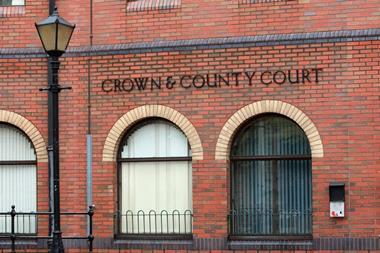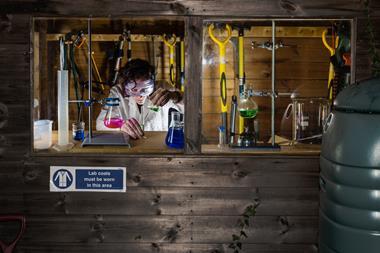A 29-year-old man living in Knutsford, Cheshire, has been found guilty of possessing hydrochloric and sulfuric acids without a licence. The case raises questions about the responsibilities of wholesalers selling regulated chemicals to members of the public.
Concentrated hydrochloric and sulfuric acids are regulated because they can be used in the illicit manufacture of explosives or to cause harm. In November 2018, it became a criminal offence in the UK to possess sulfuric acid above a concentration of 15% without a licence. The law was tightened to combat rising acid attacks across the country. In October last year, hydrochloric acid above 10% w/w was among several chemicals added to the list of regulated substances. Others include hexamine, phosphoric acid (above 30% w/w) and zinc phosphide.
In a raid last November, police found a ‘makeshift chemistry lab’ in the bedroom of Ashlea Henderson. According to police reports, this consisted of 21 unknown chemicals, both in and out of their containers, along with a range of equipment. As a precautionary measure the police evacuated over 100 households and called in the bomb squad. It was seven hours before residents could return to their homes.
At Henderson’s sentencing this month, magistrates were told that it was a chemicals wholesaler who had informed police that over a two-month period Henderson had bought ‘a list of hazardous chemicals’ – only the two acids were named in court. The prosecution pointed out that these could be used to manufacture the class A drug methamphetamine (crystal meth). But they did not provide any evidence of illicit drug production in the house.
The defence maintained that Henderson had become ‘absorbed in his chemistry hobby’ following his mother’s death and his experiments had ‘no malicious intent’. The defence lawyer acknowledged that Henderson should not have been in possession of regulated substances but pointed out that the wholesaler sold the chemicals when Henderson didn’t have a licence. The rules state that suppliers must ask to see an explosives precursors and poisons licence issued by the Home Office and a photographic ID when members of the public seek to buy any chemical from the regulated list. They must also report any suspicious transactions or transactions without a licence, which they did in this case.
Henderson received a 12-month community order including rehabilitation. He was also fined £250 and had to pay court costs of £120. His lawyer told the court his client had now given up chemistry and had taken up baking.
Rob Goulding, a reporter for the Knutsford Guardian who attended court, says the magistrates accepted the defence solicitor’s account. ‘To me, Henderson seemed like a quiet, troubled young man, rather than a drug dealer. There was a mental health treatment requirement as part of the sentence.’ The chemicals wholesaler was not named in court and no mention was made of any investigation into their role in this case, he adds.












No comments yet